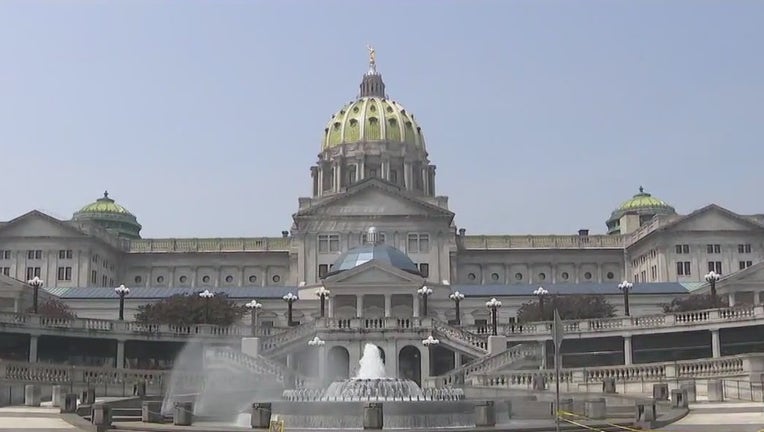Pennsylvania counties plan to miss big social-services payment as state budget stalemate drags on

HARRISBURG, Pa. - Counties in Pennsylvania are preparing to get by without payments for some of the social services they carry out as a state budget stalemate between Gov. Josh Shapiro and lawmakers drags into its fourth week.
Tens of millions of dollars for county-level services for substance abuse, child welfare, mental health and the intellectually disabled are expected to be held up in the coming days and weeks, minus some sort of breakthrough in Harrisburg to dissolve the impasse. Big payments to schools also are expected to be stalled in the coming weeks.
Berks County Commissioner Christian Leinbach said an impasse lasting a few weeks won’t have much effect. But the Legislature is not scheduled to return to session until after Labor Day and, if there is no budget agreement before then, he said, "that’s going to create some problems."
"No county can go very long without having some serious impact, from a financial standpoint," Leinbach said.
Counties have experience struggling through stalemates, including a record-breaking impasse in 2015 that did not thaw until 2016.
During it, county governments and school boards waiting on billions in state aid burned through loans and emptied reserves. Social services organizations — largely non-profits that deliver state-mandated safety-net services administered by counties — shuttered programs, borrowed money and laid off hundreds of workers who care for the state’s most vulnerable populations.
County officials say that ordeal taught them to sock away reserves to survive for a couple months, at least, as many try now to figure out how much state aid this impasse will ensnare while they take stock of their cash flow.
No county may be in imminent need of a loan — but every single county budget officer likely knows the cost to borrow will be far more severe than it was in 2015, now that interest rates are higher.
The Shapiro administration has yet to say exactly what money it will withhold from counties and other social services.
That prompted nonprofit umbrella organizations including the United Way of Pennsylvania, the Arc of Pennsylvania and the Rehabilitation and Community Providers Association this week to ask the administration for clarity to avoid "unnecessary contingency planning" and pushed Shapiro for a "broad use of spending authority."
In the short-term, counties could see the biggest amounts of state aid held up for county-level caseworkers who investigate child-abuse complaints, such as calls to the state’s ChildLine hotline.
"We will find a way to make it work like we always do," said Joe Kantz, a Snyder County commissioner. "But obviously there’s a breaking point. We’re going to be able to weather a few months, but beyond that it becomes very difficult."
Monica Taylor, Delaware County Council’s chair, said the county’s agencies are sorting through their programs to determine what sort of shortfall to expect and how to use their cash flow to stretch services for as long as they possibly can.
Philadelphia Mayor Jim Kenney's office said the city has a relatively high cash balance that should help it avoid problems — if the stalemate is resolved in the coming months.
Rich Fitzgerald, Allegheny County's executive, said the county weathered the stalemate with its sizable fund balance in 2015, and he’s thought about that since, working to build up the county's reserves before another protracted state budget impasse.
The county's fund balance, about $53 million, will cover costs for several months, he said.
"We always want to have that rainy day fund so we’re prepared," Fitzgerald said. "I guess you could say 'right now it’s raining' and we need the rainy day fund."
Berks County crafted a contract clause with vendors that said it was not obligated to pay until the state budget was complete.
The county will be on stable footing through the summer, Leinbach said. But as it approaches September, officials there will have to apportion a dwindling pool of cash among vendors and decide which are delivering critical services — and which are not, Leinbach said.
In 2015, some services "were stretched to the breaking point," Leinbach said.
"When you’re working with families and children in crisis, you can’t exactly say, ‘You know what, the money isn’t flowing, we can’t come out and intervene,’" he said. "We will get it done."

